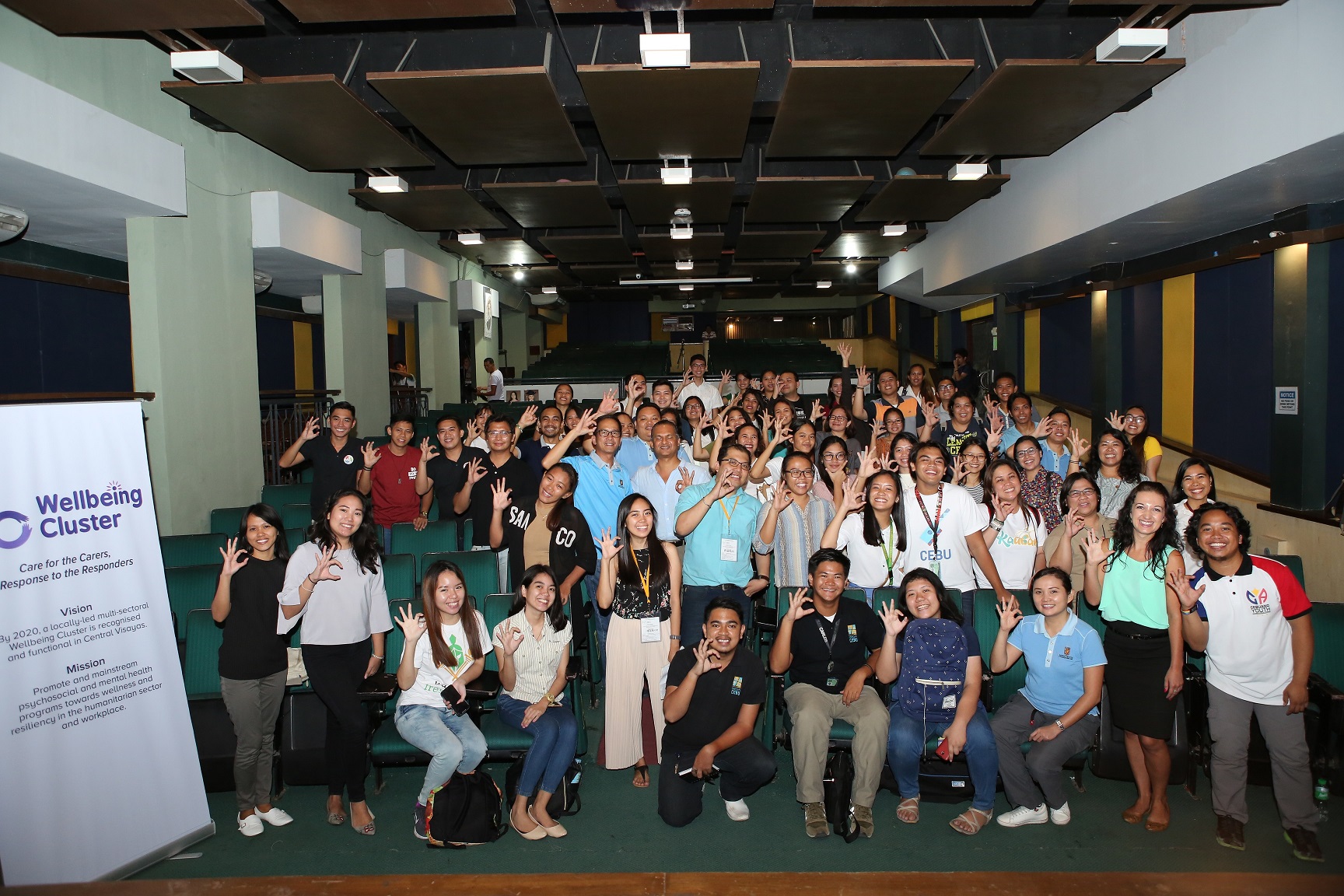In Cebu, in the Philippines, the very first dedicated 'Wellbeing Cluster' was officially launched on July 30th. Aiming to catalyse a new way that NGOs prioritise and support the mental health and wellbeing of staff in the humanitarian sector.
The Wellbeing Cluster is envisioned as a new model and potentially the first of many clusters intended to be launched nationally, regionally, and globally, forming a network of pooled knowledge, expertise, services and resources.
The cluster has evolved from the Mindfulness & Wellbeing component of the Transforming Surge Capacity project, part of the Start Network's portfolio of projects under the Disasters and Emergencies Preparedness Programme (DEPP) funded by UK Aid.
Providing inspired local leadership, the Central Visayas Network of NGOs (CENVISNET) and the Ramon Aboitiz Foundation Inc. (RAFI), have been instrumental in taking the initial vision and making it a reality on the ground. From the initial concept and design, developed under the Mindfulness and Wellbeing project, led by Action Against Hunger UK, and supported locally by the Humanitarian Leadership Academy (HLA) Philippines, this collaborative endeavour has brought the Wellbeing Cluster to life.
The core aim of the cluster is to be a dedicated multi-stakeholder platform that brings humanitarian agencies from across the Philippines together to prioritise the mental health and wellbeing of aid workers. More importantly, the Wellbeing Cluster is also working closely with communities, so that in partnership, we may ultimately break stigma and taboo together, and help bring clarity around mental health, and build wellbeing and resilience with our beneficiaries. In this way, it has the potential to elevate the wellbeing and resilience of entire communities and to create open and accepting environments to tackle mental illness more effectively.
In essence, the creation of this first ‘Wellbeing Cluster’, is to support aid workers and communities more effectively before, during and after a humanitarian response, where they often witness and experience the suffering of others. This can often have deep emotional and psychological consequences.
The Wellbeing Cluster model has the potential to become an important component in the humanitarian architecture, and a way that can mainstream mental health and wellbeing, not only for ourselves but also the communities we support.
Clusters will link local and national NGOs, with INGOs, governmental departments, academia, youth organisations, the private sector, CSOs, and other key stakeholders to work together in strategically building the capacity of both individuals and organisations in all aspects of wellbeing related to mental health.
Importantly, the localized ‘cluster’ approach and the focus on prevention and preparedness means that individuals and organisations can connect and grow together in challenging and catalyzing mental health issues, and in building capacity together as a community, rather than in isolated pockets. This working together may allow for greater coordination before, during and after a crisis or disaster.
The creation and pilot of the first wellbeing cluster in Cebu offers a potentially practical and tangible opportunity for agencies to address, mainstream, collaborate, mitigate, and positively change the way in which mental health is managed in the humanitarian sector.
Hitendra Solanki, Action Against Hunger’s Project Lead for the Mindfulness & Wellbeing Project, said,
"The creation of the wellbeing cluster in Cebu is an important and significant first step towards a better way to support our workers, not only in the Philippines, but perhaps globally also. As such, as we begin replicating the Wellbeing Clusters across the Philippines, and also in the UK, the voices of all champions and organisations are called upon, to support this model as a new component in the humanitarian architecture, and to ensure that the mental health and wellbeing of our workers, and the communities we support, are finally prioritised."
Read Hitendra Solanki's blog urging NGOs to act now to protect worker’s mental health and wellbeing.
For more information about the Wellbeing Cluster, and initiatives, please contact Hitendra Solanki, Mindfulness & Wellbeing Adviser, Action Against Hunger UK at h.solanki@actionagainsthunger.org.uk.
Read more about the DEPP's Transforming Surge Capacity project.

